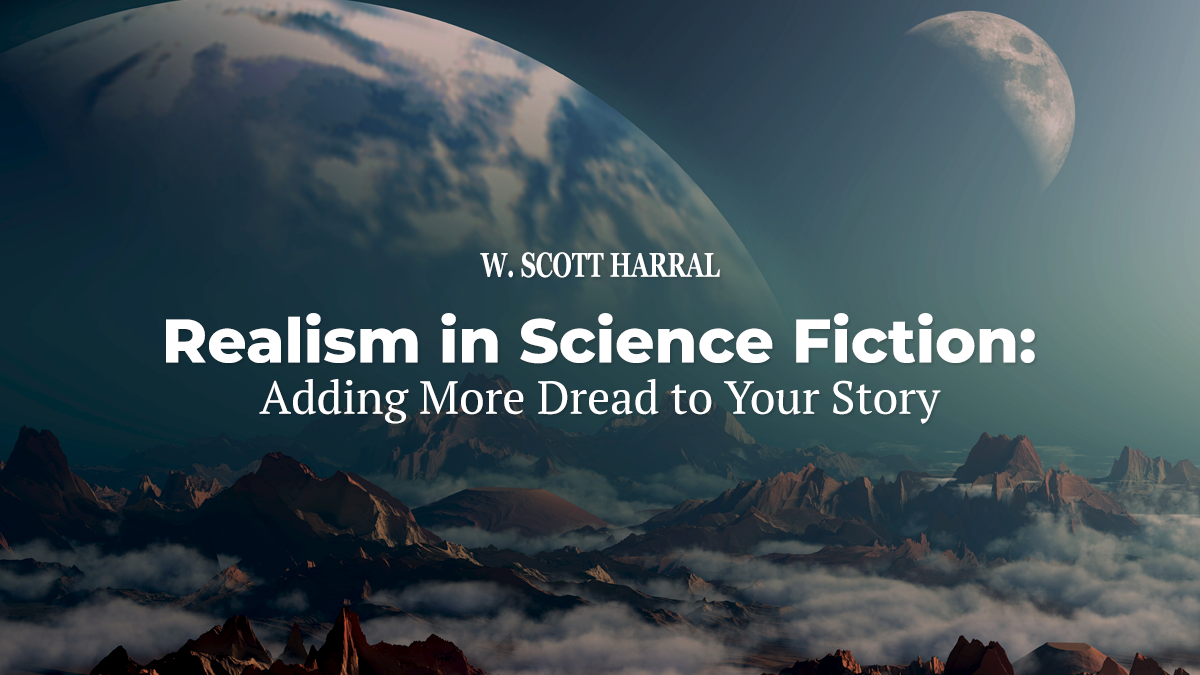
Have you ever noticed how some of the most science fiction novels that make it out to the mainstream are typically those that seem very realistic?
These novels are commonly grounded on reliable scientific concepts that make their audience ponder the “what-ifs.” What if these events become true? Or, what if this is already happening without us knowing. Some of the key factors in a science fiction ground the story in reality, making it believable and understandable.
This is one of the many charms of science fiction. Its possible realism makes people reflect on themselves and their relationship with the world. It helps them make sense of their mistakes and explore and see fault in their behavior concerning the issues experienced by the world. For instance, in movies about eco-catastrophes, people may reflect on how their behavior and habits can affect the world and bring possible consequences. If not for its entertainment value, this is perhaps one of the reasons why realism should be highly considered in novels.
Why do people enjoy watching science fiction, even if they include catastrophic and scary themes?
The concept of realism focuses on creating an illusion of reality in your media. If a novel, for instance, is labeled as realistic, its concepts should have a clear reflection and association with the real world. If this makes sense, people want to experience the excitement or catastrophe science fiction has to offer without actually experiencing it. And realism in the media puts the audience into this world that the author (or director for movies) has created, which makes it so popular.
It’s been solidified that somehow people can be so curious about morbid events. Humans, as curious beings, like placing themselves in other people’s shoes, especially if this involves rather tragic circumstances. This instinct can be associated with people convincing themselves that they would never end up in these situations. If they do, they can protect themselves and survive. This unusual fact can explain why most people remain so invested in horror movies, despite being easily scared and even paranoid afterward.
This inclination has been programmed in them since time immemorial. This can be explained at the anatomical and psychological levels by how their brain functions. Being scared is reflected in the brain the same way as excitement is. This means that if people are faced with scary events, their brains can mistake it for excitement, which is why they mostly continue to anticipate or look for a stimulus that induces this emotion.
This implies that one of the ways to make a science fiction novel catch people’s interest is by making it realistic and with a theme that can stir people’s emotions. And as an aspiring writer, who aims to write great and gripping science fiction novels, you need to find ways to improve your writing skills. Here’s how you can do it.
Utilize existing or highly debated creatures and technology
There is a reason why most dinosaur and alien movies never fail to catch people’s attention. For instance, dinosaurs have been known to exist a long time ago, and how they behaved is something people are generally curious about. On the other hand, aliens are the center of the debate about their existence. Therefore, writing about them can create debate and discussion, which can help boost your book’s publicity.
This is what Harral’s sci-fi and mystery book offer. While Moon Luck doesn’t have aliens or highly dangerous predators in it, this novel tackles the curious case of moon travel. Whether or not humans can survive days on the moon has consistently been something that scientists and citizens alike have pondered the possibility of. This is why movies about this concept can quickly become blockbusters in today’s society.
Study physics and science
Just because you’re writing science fiction – with capital fiction – it doesn’t mean you can write whatever your heart and mind want. You still need to bank it on some realistic components if you want your events to seem plausible. With this, learning is still required. But this doesn’t mean you need a degree and fluency in the language of science. This only entails that you should have done ample research before you write anything involving science. For your novel to be believable, it needs to have any sense of reliability and validity.
Consider building your world around existing ones
While there’s something very unsettling about the dystopian world, creating your sci-fi world on something closely similar to the current society is even more dramatic. This does for your audience only amplifies the realism, adding even more possibility to your narrative. Perhaps in making this, you’re adding more dread to your story with the heightened plausibility of whatever catastrophe you place your characters into.
When it comes to writing science fiction, the sky’s your limit. The world becomes rather liberating, and you can devise whatever mechanism to help make your world as exciting as you’d like it to be. Realism isn’t necessary, but it does impact your story. What’s great about writing science fiction is that anyone can be a master of it with a bit of planning and wit.

